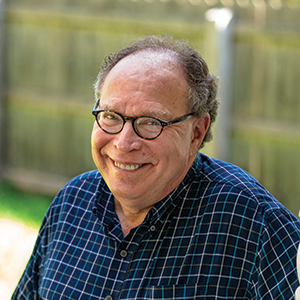-
First Immunotherapy Approved for Breast Cancer
Medical oncologist Leisha A. Emens discusses the significance of the first U.S. Food and Drug Administration approval of an immunotherapy treatment for breast cancer.
by Anna Azvolinsky
-
Holding Off on Treatment
Patients diagnosed with low-risk prostate cancer are increasingly opting against immediate surgery or radiation in favor of regularly monitoring their disease.
by Jon Kelvey
-
Young Colorectal Cancer Patients Are Often Misdiagnosed
A new survey suggests that young adults with colorectal cancer struggle to receive an accurate, prompt diagnosis.
by Bradley Jones
-
Considering the Term “Cancer Survivor”
A study investigates how people who have been diagnosed with cancer feel about being called survivors.
by Jen Tota McGivney
-
Treating Breast Cancer in Men
Hormone therapy may lengthen life in men with hormone-related breast cancer, but this treatment is prescribed less frequently for men than for women.
by Marilyn Fenichel
-
Survivor Profile
The Bridge BuilderBreast cancer survivor Bob Riter forges connections among people affected by all types of cancer.
by Marci A. Landsmann
-
Q&A
Dissecting Mental IllnessNeuroscientist Barbara Lipska describes her experiences with symptoms of psychiatric illness caused by treatment for metastases in her brain.
by Marci A. Landsmann
-
The Education of a Patient Advocate
Bob Riter explains how his breast cancer diagnosis set him on a path to find his calling.
by Bob Riter
-
Forward Look
In Women, Lung Cancer Rates Are Rising WorldwideLung cancer deaths are set to surpass breast cancer deaths in many regions.
by Cameron Walker
-
Healthy Habits
Carb ConnectionCould consuming fewer simple carbohydrates lead to better cancer outcomes?
by Lindsey Konkel
Cancer Talk
The Power of Comedy
In a new play, the pain of cancer can be a chance to laugh.
by Ashley P. Taylor
Melanoma Risk in Childhood Cancer SurvivorsPeople treated for childhood cancer found to have twice the risk of developing melanoma as an adult.
by Cameron Walker
Online Second OpinionsMore than half of patients who participated in a program offering online second opinions were recommended a change to their treatment plan.
by Eric Fitzsimmons
Musical Toxicity an Effect of Cancer TreatmentStudy finding cancer treatment affects ability to play or sing music highlights need for physical therapy, experts say.
by Kyle Bagenstose















